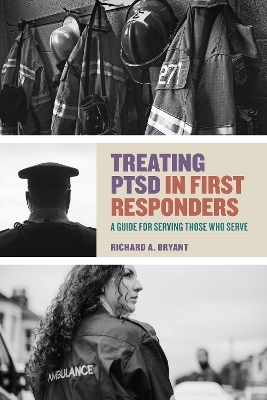
Treating PTSD in First Responders
American Psychological Association (Verlag)
978-1-4338-3559-9 (ISBN)
By the nature of their jobs, first responders are often highly exposed to traumatic events.
Police, firefighters, and paramedics experience markedly higher rates of PTSD than others in the community. They also face distinct organizational challenges that complicate their stress reactions. Often, this results in needs that are not addressed in manuals developed for people who have survived single traumatic events.
This book provides an overview of theoretical and empirical frameworks for understanding PTSD in first responders and outlines practical and evidence-based approaches to assess and treat PTSD in these populations. Other chapters cover the particular challenges of working with first responders, including comorbidities; organizational stressors that can complicate treatment; and forensic issues therapists should consider through assessment and treatment.
The author’s approach is based on cognitive behavior therapy and is supported by research done in the Traumatic Stress Clinic in Australia, which has treated hundreds of first responders. This comprehensive volume is essentially the outcome of the author’s lessons learned about what is effective and what is not in helping police, firefighters, and paramedics deal with their stress-related conditions.
Richard A. Bryant, PhD, is a Scientia Professor of Psychology at UNSW Sydney. Professor Bryant has researched posttraumatic stress disorder (PTSD) for over 30 years; his work has identified key genetic, neural, and psychological factors underpinning PTSD, and he has developed the world’s leading screening tools for early identification of PTSD as well as the most commonly used early intervention protocols. Professor Bryant has published widely and served on DSM–5 and ICD-11 committees to define PTSD diagnoses. In 2016 he received the Companion of the Order of Australia, Australia’s highest honor. He consults with international agencies on management of psychological responses to trauma and adversity.
Acknowledgments
Introduction: An Outline of Treating PTSD in First Responders
1. A Review of Current Knowledge of PTSD
2. What Do We Know About PTSD in First Responders?
3. Models of PTSD
4. Moral Injury in First Responders
5. Assessing PTSD in First Responders
6. Review of Treatments for PTSD
7. The Potential for Psychological Debriefing as a Preventative Intervention
8. Strategies for Treating PTSD in First Responders
9. Challenges in Treating First Responders
10. Addressing Organizational Stressors During Therapy
11. Forensic Issues
12. Concluding Comments and Future Directions: Treating PTSD in First Responders
References
Index
About the Author
| Erscheinungsdatum | 06.08.2021 |
|---|---|
| Verlagsort | Washington DC |
| Sprache | englisch |
| Maße | 152 x 229 mm |
| Themenwelt | Geisteswissenschaften ► Psychologie ► Klinische Psychologie |
| Geisteswissenschaften ► Psychologie ► Persönlichkeitsstörungen | |
| Medizin / Pharmazie ► Gesundheitswesen | |
| Sozialwissenschaften ► Soziologie | |
| ISBN-10 | 1-4338-3559-2 / 1433835592 |
| ISBN-13 | 978-1-4338-3559-9 / 9781433835599 |
| Zustand | Neuware |
| Haben Sie eine Frage zum Produkt? |
aus dem Bereich


